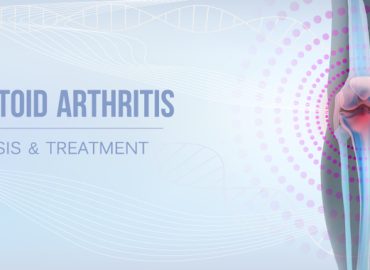Thyroid Health and Aging: Why Screening is Important for Seniors
As we age, our bodies undergo several changes, including hormonal imbalances that can lead to various health issues. One of the most common conditions that affect seniors is thyroid dysfunction. In Malaysia, the prevalence of thyroid disorders has increased significantly in recent years, making it crucial for seniors to undergo regular screening to detect and manage any thyroid-related issues. For now, let us explore the relationship between thyroid health and aging, the importance of screening for seniors, and how Malaysians can take steps to maintain healthy thyroid function.

Understanding Thyroid Health and Aging
The thyroid gland is a small butterfly-shaped gland located in the neck, responsible for producing hormones that regulate the body’s metabolism, growth, and development. As we age, the thyroid gland undergoes changes that can affect its function, leading to an imbalance in hormone levels.
Thyroid disorders are more prevalent in women than men, and the risk increases with age. The two most common thyroid disorders are hypothyroidism (underactive thyroid) and hyperthyroidism (overactive thyroid).
Signs and Symptoms of Thyroid Dysfunction
Thyroid dysfunction can cause a wide range of symptoms that can often be mistaken for signs of aging or other health issues. Some of the most common symptoms of hypothyroidism include fatigue, weight gain, cold intolerance, and dry skin. In contrast, hyperthyroidism can cause symptoms such as weight loss, heat intolerance, sweating, and anxiety.
The Importance of Thyroid Screening for Seniors
Given the prevalence of thyroid disorders in seniors, it’s crucial to undergo regular screening to detect any thyroid-related issues. Thyroid screening typically involves a blood test that measures the levels of thyroid hormones (T3 and T4) and thyroid-stimulating hormone (TSH) in the blood.
Early detection and management of thyroid disorders can help prevent serious health complications, such as heart disease, osteoporosis, and cognitive impairment.
Steps Seniors Can Take to Maintain Healthy Thyroid Function
While thyroid disorders cannot be prevented entirely, there are several steps seniors can take to maintain healthy thyroid function. Some of the most effective measures include:
- Eating a Balanced Diet
A balanced diet that includes plenty of fruits, vegetables, whole grains, and lean protein sources can help support thyroid health. Foods that are rich in iodine, such as seaweed, eggs, and dairy products, can also help promote healthy thyroid function.
- Managing Stress
Stress can have a significant impact on thyroid function, so managing stress levels is crucial for maintaining healthy thyroid function. Engaging in relaxation techniques such as yoga, meditation, and deep breathing exercises can help reduce stress levels and support overall thyroid health.
- Exercising Regularly
Regular exercise is essential for maintaining overall health and can also help support thyroid function. Seniors should aim for at least 30 minutes of moderate-intensity exercise most days of the week, such as brisk walking, cycling, or swimming.
- Getting Regular Check-Ups
Seniors should undergo regular check-ups with their healthcare provider to detect any thyroid-related issues early on. Routine screening can help ensure that any thyroid disorders are diagnosed and treated promptly, preventing serious complications.

Conclusion
Thyroid dysfunction is a prevalent condition that affects seniors in Malaysia and can have significant health consequences if left untreated. Regular screening and early detection are crucial for managing thyroid disorders effectively. Seniors can take several steps to maintain healthy thyroid function, including eating a balanced diet, managing stress, exercising regularly, and undergoing regular check-ups. By taking proactive measures to support thyroid health, seniors can enjoy optimal health and wellbeing as they age.





















